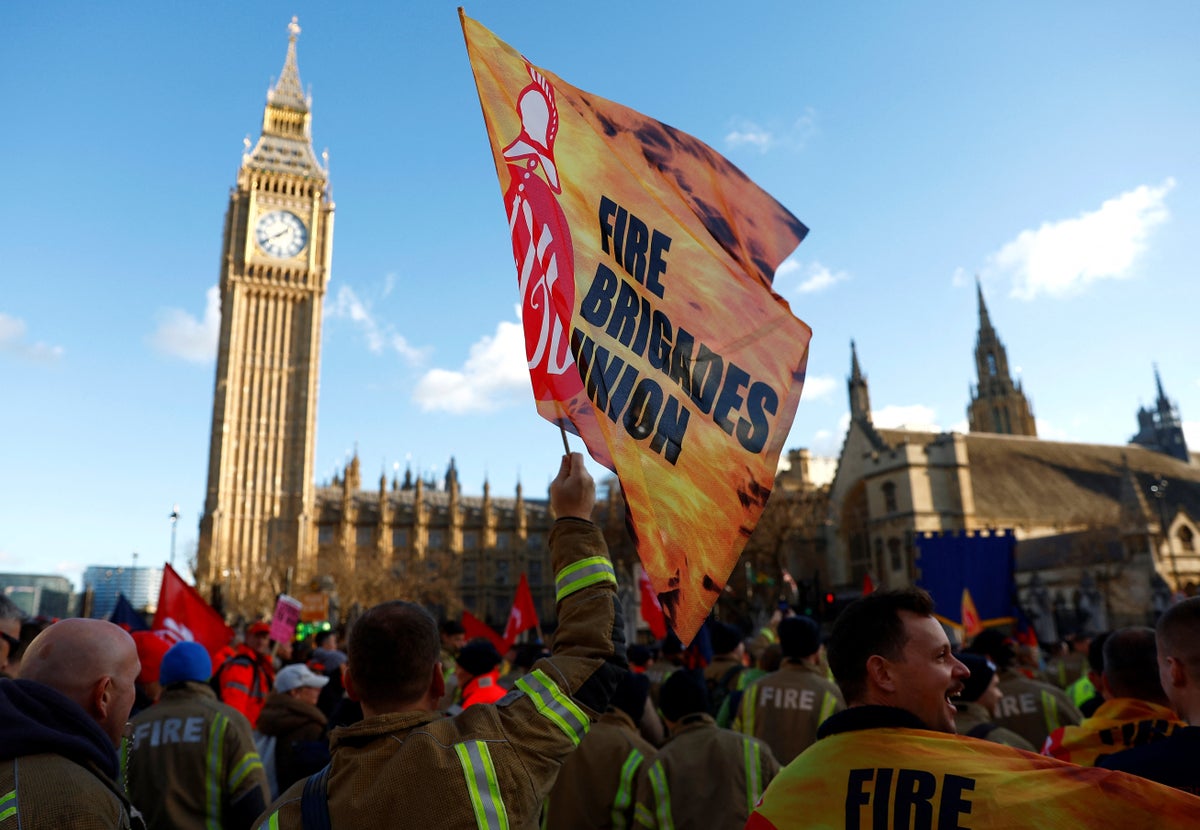Get the free Morning Headlines email for news from our reporters across the world
Sign up to our free Morning Headlines email
Cleaners and HR staff are being trained to respond to emergency calls ahead of a possible firefighters’ strike, according to reports.
Members of the Fire Brigades Union (FBU) are being balloted for strike action, which is set to close on 30 January. Union leaders are reported to be confident of reaching the threshold for a walkout.
If firefighters do vote in favour of industrial action, the UK will see its first national strike on pay from fire services since 2003.
According to The Telegraph, backroom and service staff will bolster frontline services in the event of strikes going ahead.
This is said to include those working in finance and HR departments, building safety, cleaners, or “anyone else who is prepared to step forward”, according to chairman of the National Fire Chiefs Council, Mark Hardingham.
Recommended
- Army to be drafted in if firefighters vote to strike
- Everything you need to know about the ambulance strikes
- Do you have to strike if your union strikes?
- Tory ministers ‘looking to privatise’ NHS, says union boss
It comes after The Independent reported that the military is being drafted in to cover the expected strike, with an RAF base on the outskirts of London set to be used for soldiers and fire engines.
Speaking with The Telegraph, Mr Hardingham said: “These are members of the fire and rescue service who might not be trained firefighters but can be trained up to provide basic level of cover.
“The fire service would still carry the liability, so you can’t just take anyone. They need a basic level of fitness and they need to pass a health assessment. There is a programme of training lasting on average two weeks, and not everyone will pass that.
“A lot of services are already doing this now.”
Soldiers have previously been trained to fill the gaps of ambulance workers as industrial action took place
(PA Wire)
Fire services across the country are also said to be establishing “contingency crews”, through recruiting temporary and agency staff from private companies to provide cover for those striking.
Mr Hardingham added that contracts with large outsourcing firms, external agencies and companies were for firefighters “with a limited degree of training who can come in to provide cover.”
Recommended
- Probation crisis: One person killed every three days by offenders under supervision
- New evidence ‘shows Prince Andrew and Virginia Giuffre photo is real’
- Boris Johnson ‘was told to stop seeking financial advice from BBC chair’
- Sunak and Hunt keep talking – but thanks to Zahawi, no one is listening
Previous strikes from ambulance and health service workers have involved armed service personnel being brought in to fill gaps in the workforce. This reliance on armed forces as contingency workers has drawn criticism from army chiefs.
Admiral Sir Tony Radakin, chief of the defence staff, said last month: “We’re not spare capacity, we’re busy and we’re doing lots of things on behalf of the nation.
“We’ve got to focus on our primary role. It would be slightly perilous to rely on defence to be doing all of these things as the ultimate backstop.”
✕
Subscribe to Independent Premium to bookmark this article
Want to bookmark your favourite articles and stories to read or reference later? Start your Independent Premium subscription today.
SubscribeAlready subscribed? Log in
Popular videos
{{/link}}

